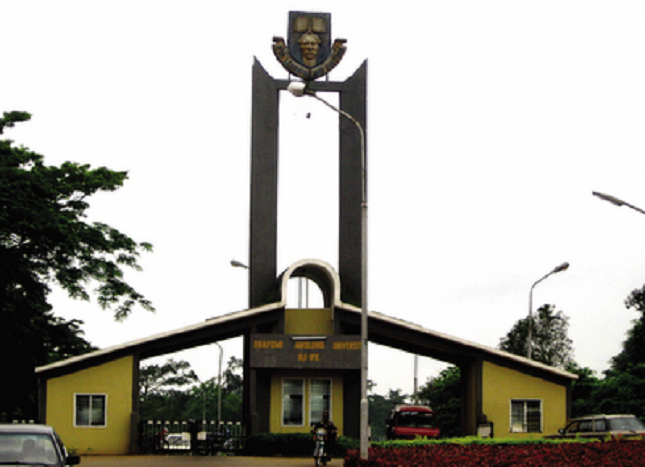PROMINENT Nigerians from across the South West and the Diaspora converged on the Obafemi Awolowo University, Ile-Ife, on Friday to honour the founding professor and Head of the university’s Department of English, Professor Adebisi Afolayan, with a book launch.
Speakers at the event included the governor of Osun State, Senator Ademola Adeleke; a former governor of the state, Rauf Aregbesola; the university’s vice chancellor, Professor Adebayo Simeon Bamire; the Orangun of Oke Ila, Oba Adedokun Abolarin; Columnist and Editor, Saturday Tribune, Dr Lasisi Olagunju; and the mystery musician, Lagbaja (Bisade Ologunde).
Professor Afolayan conceptualised and implemented the famous six-year Primary Project, the objective of which was to get the country to make the mother tongue the only language of instruction for all subjects in schools.
In his speech, Governor Adeleke who was represented by the Commissioner for Education, commended Professor Afolayan for his contributions to the advancement of scholarship and promotion of Yoruba language.
In honour of Professor Afolayan, Governor Adeleke directed the principal of Ebekun Grammar School, Iresi, to submit a request of all the needs of the school to the state government for immediate attention.
Professor Afolayan, a nonagenarian, hails from Iresi in Boluwaduro Local Government Area of the state.
In his own speech, former Governor Aregbesola described Professor Afolayan as one of the rare breed of intellectuals in Nigeria “whose works and theories transcend the walls of academia into beneficial practice for the sole purpose of enriching humanity.”
He said: “Baba’s publications on the key role of Yoruba language in achieving qualitative and functional education, his practical demonstration of same with his committed involvement in ‘the Six-Year Primary Project’ – the Mother Tongue Education Research Project in Ife – with Yoruba language as the language of teaching and communication, his continued commitment to the development of Yoruba language for education are worthy of celebration.
“In ‘My Pact with the People of the State of Osun’ which we issued while preparing to be governor, we communicated our intention to ‘promote functional education; education that makes one useful to oneself and society’.
“We were committed to laying the foundation of education that will develop our youths into productive, critical and creative thinking cultural icons, who will be models of good character, innovation and competence; the quintessential Omoluabi.
“The six-year Primary Project resonated with our plans and we wanted to implement it in Osun. We discussed with Professor Afolayan and I was enthusiastic to have him lead the project. Unfortunately for Osun, Yorubaland and Nigeria, our efforts did not produce the desired result within our time.
“As our contribution to laying a foundation for the future implementation, so that governments after us could continue with it, we developed and approved the Omoluabi policy of education in 2018 with one of the ‘specific policy focus’ items saying ‘government shall implement Yoruba as the language in schools…’ and ‘government shall develop this to include full usage of Yoruba in high schools and tertiary institutions’.
“Being here today, for me, is to demonstrate my love and commitment to this noble cause that Baba holds dear and to pledge my support, Insha Allah, for efforts to sustain and achieve illumination and greatness for the Yoruba race and Africans.”
The vice chancellor of the university, Professor Bamire, noted the stellar contributions of Professor Afolayan to the progress of the university and his pioneering roles in nurturing the university’s Department of English.
The Orangun of Oke Ila, Oba Abolarin, said it was important to appreciate people like Professor Adebisi Afolayan, Professor Ayo Bamgbose and Professor Emeritus Ayo Banjo, former Vice Chancellor of the University of Ibadan, for their emphasis “on our local, indigenous Yoruba language.”
According to him, “it is not possible for us to go anywhere if we do not lay emphasis on Yoruba language as a primary source of study.”
He said: “Professor Afolayan’s house, when we were growing up in Ife between 1976 and 1990, was an arena for contestation of ideas. He is an old man tolerant of ideas. He invested in his students. He invested in members of his family, both nuclear and extended. It was a beautiful day. I thank God that I was in attendance.”
The Editor, Saturday Tribune, Dr Olagunju, who is a product of the English department of OAU, described Professor Afolayan as the ancestor of the department.
Olagunju said: “One interesting thing about the career life of this great Nigerian is that he is a professor of English language who spent the better part of his active scholarship life promoting the use and adoption of Yoruba language both as language of instruction in schools and as language of acquisition of knowledge.
“The best honour we can do Professor Afolayan is to rededicate ourselves to the promotion of Yoruba language by ensuring that it does not go into extinction.”
Bisade Ologunde (Lagbaja), who thrilled the gathering with his peculiar music, in the book, ‘Adebisi Afolayan: The Celebration of a Living Legend – His Life, Works and Everything In-Between’, described Professor Afolayan as his “other father” whom he referred to as “Baba Muko-Muko” in one of his most popular albums.
The book reviewer, Professor Idowu Odebode of the Redeemer’s University, Ede, said: “The book contains a panoply of 59 chapters, 713 pages and three sections. Section one contains the write-ups by the honoree’s friends, colleagues and students. Section two showcases seven selected works of the honoree while the last section contains eulogies and tributes to Papa mostly by his inner caucus and family members.
“In all, we have about 52 authors, apart from the honoree whose seven papers were selected largely as Section two of the volume.”
Other people in attendance included a foremost newspaper columnist, Dr Festus Adedayo and Professor Afolayan’s family, friends and colleagues from across the world and lecturers from the department of English, OAU.
